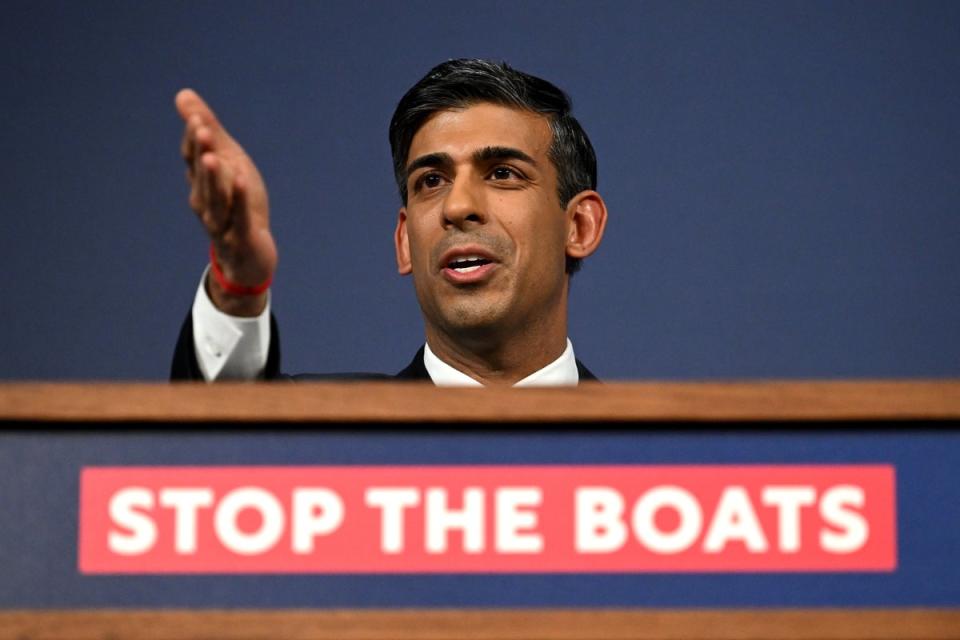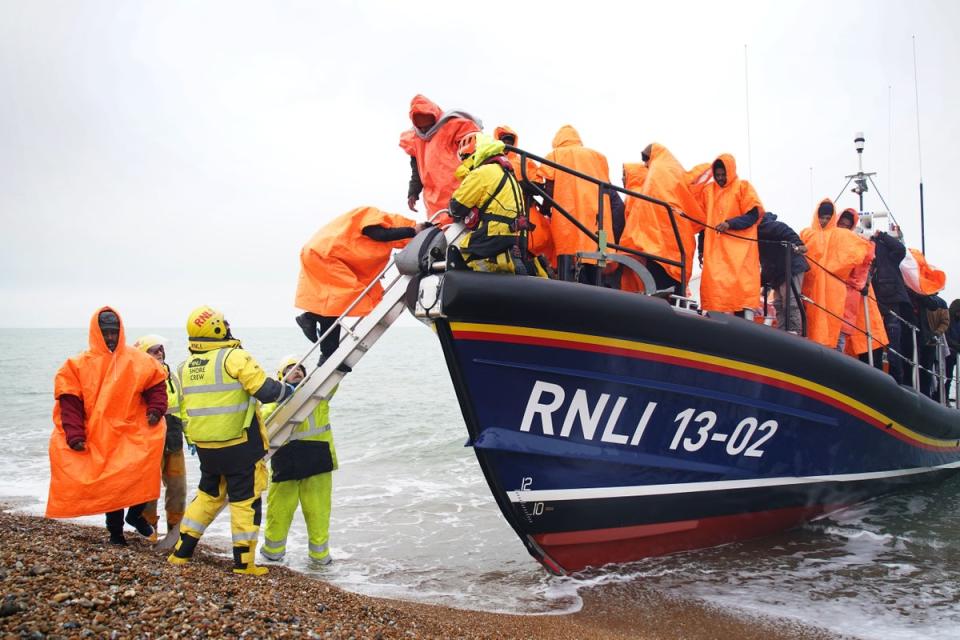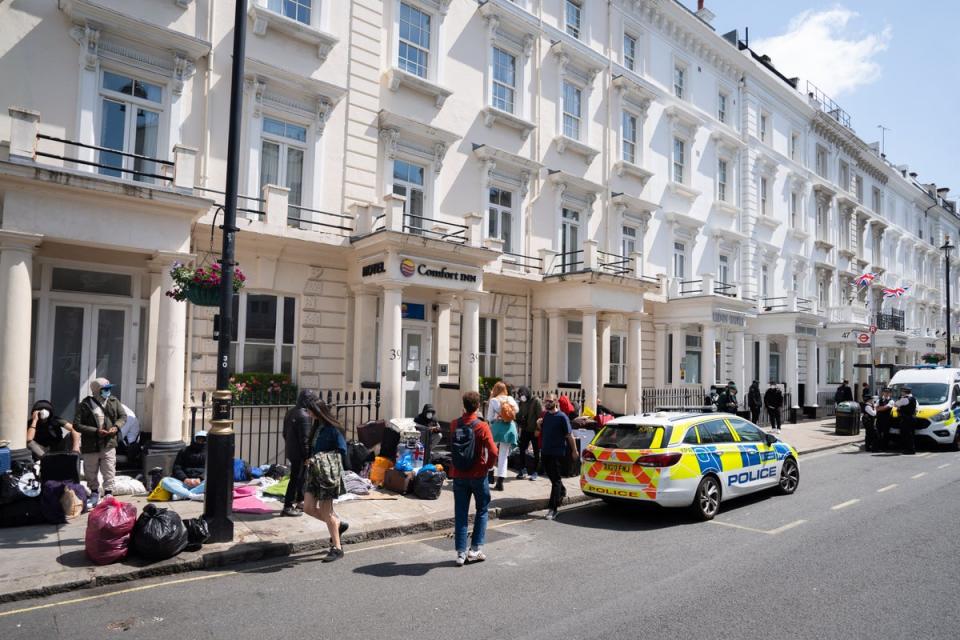PM Rishi Sunak to speak out about his pledge to stop small boats crossing the Channel

Rishi Sunak will speak out about his pledge to end small boat Channel crossings and tackle the asylum backlog as he comes under pressure over Conservative migration pledges.
In a speech in Kent on Monday, the Prime Minister will give an update on the progress made in the six months since he introduced the Illegal Migration Bill under his plans to “stop the boats”.
During the visit to Kent, the Prime Minister is expected to acknowledge more needs to be done to tackle unauthorised crossings as he offers updates on the number of arrivals across the Channel, on where the backlog in processing asylum cases stands and efforts to reduce the expensive use of hotels to house migrants.

His speech comes after Immigration minister Robert Jenrick described the asylum system as “riddled with abuse” and said it needs fundamental change as he defended making adult asylum seekers share rooms to reduce the reliance on hotels as “completely fair and reasonable”.
Mr Jenrick also said the backlog in processing asylum cases Mr Sunak promised to abolish this year stands at more than 150,000 cases after hitting a new high.
The Conservatives are also under pressure on legal migration which soared to a record high of 606,000 last year despite pledges to bring it down.
Mr Jenrick said immigration is “far too high today” but said targets such as David Cameron’s 2010 pledge to reduce net migration to below 100,000 were not “particularly helpful”. Home Secretary Suella Braverman has said it is her “ultimate aspiration” to get levels down to tens of thousands.

The minister was also quizzed on standards of accommodation for asylum seekers after Westminster City Council leader Adam Hug raised his “deep concern” to the Government about around 40 asylum seekers refused to enter a hotel in Pimlico in London when they were asked to sleep four people to a room.
The Labour politician said asking people who “are likely to have been through significant and traumatic events” to share “an inappropriately sized room with multiple strangers defies common sense and basic decency”.
But Mr Jenrick said single adult males will be asked to share rooms as the Government struggles to reduce reliance on hotels.
“I think that’s a completely fair and reasonable approach,” he told Sunday With Laura Kuenssberg.

After 13 years of the Conservatives being in power, Mr Jenrick said there is a need to be “changing fundamentally” how asylum is dealt with in the UK.
“The asylum system is riddled with abuse, we have to be honest with ourselves,” he told the BBC programme.
Enver Solomon, chief executive of the Refugee Council, criticised Mr Jenrick’s “untrue” claims and said the majority of people crossing the Channel are shown to be refugees.
“Instead of explaining away failures in the asylum system, it is essential for the Government to keep a sustained focus on fixing the problems within the UK asylum system, starting with real commitment and resourcing to tackling the asylum backlog of 170,000,” Mr Solomon said.
Ministers have welcomed a “landmark” agreement with Albania to send back failed asylum seekers and foreign offenders, but Mr Jenrick conceded to Sky’s Sophy Ridge On Sunday that just “hundreds” of Albanians who arrived on small boats have been put on return flights.
Official figures put the number of people who arrived on small boats last year at 45,000.
The UK has a legal obligation to provide asylum seekers, who are not allowed to work, with a basic level of accommodation.
The latest Home Office figures showed that 172,758 people were waiting for an initial decision on asylum applications at the end of March, up 57% from a year earlier and the highest figure since comparable records began in 2010.
In December, Mr Sunak pledged to “abolish the backlog of initial asylum decisions” by the end of 2023.

 Yahoo Sports
Yahoo Sports 